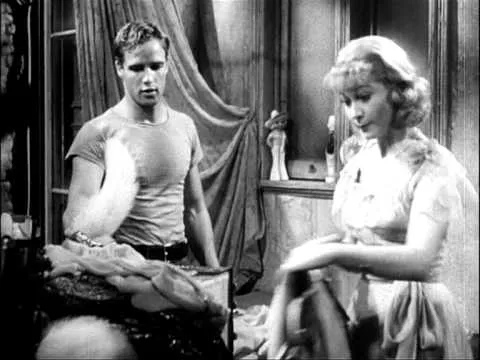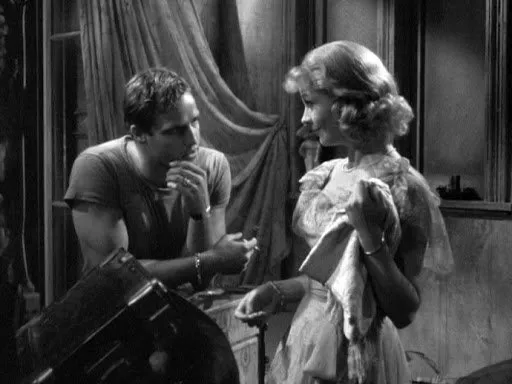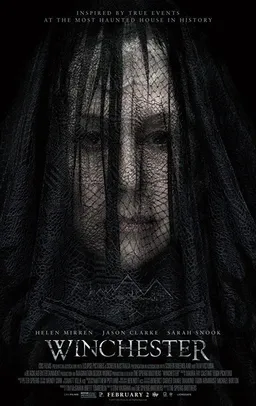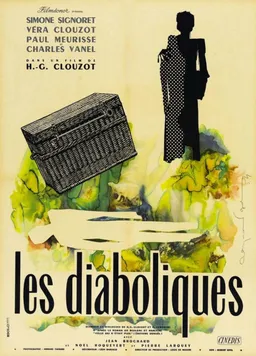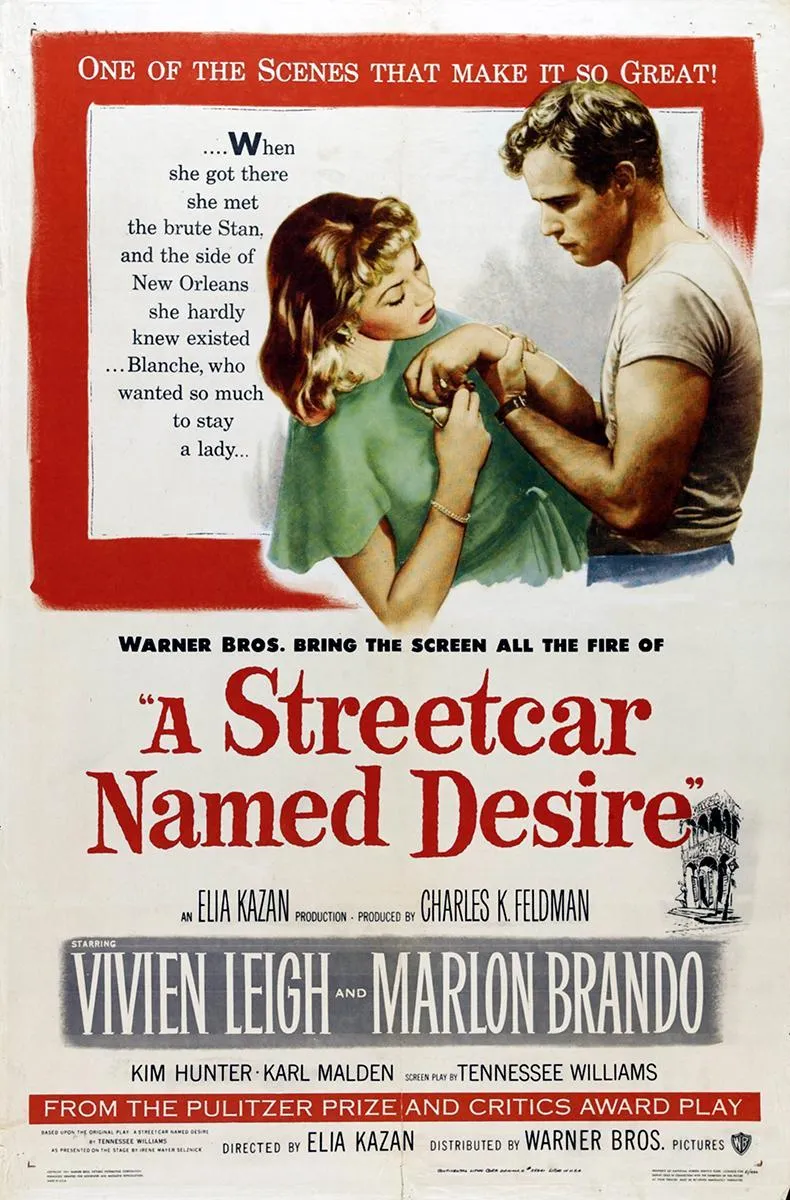
Poster



E N G L I S H
Of the classic films that astonished the world, there is one that was preserved as a cinematic work within the cultural realm. A story full of drama, power struggle and lies, it has become a life force that dazzled the world. There are few cinematic representations that teach us about attraction in its different representations in such an original way.
E S P A Ñ O L
De las películas clásicas que asombraron al mundo, existe una que fue preservada como una obra cinematográfica dentro del ámbito cultural. Una historia llena de drama, lucha de poder y mentiras, se ha convertido en una fuerza vital que deslumbró al mundo. Existen pocas representaciones cinematográficas que nos enseñan sobre la atracción en sus distintas representaciones de esta manera tan original.


Technical Data
A Streetcar Named Desire is a 1951 American drama film directed by Elia Kazan and written by the famous writer Tennessee Williams, based on his play of the same name. It starred Vivien Leigh, Marlon Brando, Kim Hunter and Karl Malden. It was produced by Warner Bros. with a budget of 1 million dollars and grossed 8 million dollars after its release. The music was elaborated by Alex North, while Harry Stradling was in charge of photography. The film won several awards, among the most outstanding we have the Best Actress for Vivien Leigh, Best Art Direction for Harry Stradling and Best Supporting Actor for Kim Hunter and Karl Malden. Despite Marlon Brando's excellent performance, he did not win any awards.
Ficha Técnica
A Streetcar Named Desire es una película dramática estadounidense de 1951 dirigida por Elia Kazan y escrita por el famoso escritor Tennessee Williams, basándose en su obra de teatro homónima. Estuvo protagonizada por Vivien Leigh, Marlon Brando, Kim Hunter y Karl Malden. Fue producida por la Warner Bros con un presupuesto de 1 millón de dólares recaudando 8 millones después de su estreno. La música fue elaborada por Alex North, mientras que en fotografía estuvo a cargo Harry Stradling. El filme fue galardonado con varios premios, entre los más destacados tenemos el de Mejor Actriz para Vivien Leigh, Mejor Dirección Artística para Harry Stradling y Mejor Actor de Reparto para Kim Hunter y Karl Malden. A pesar de la excelente actuación de Marlon Brando, éste no se llevó ningún premio.



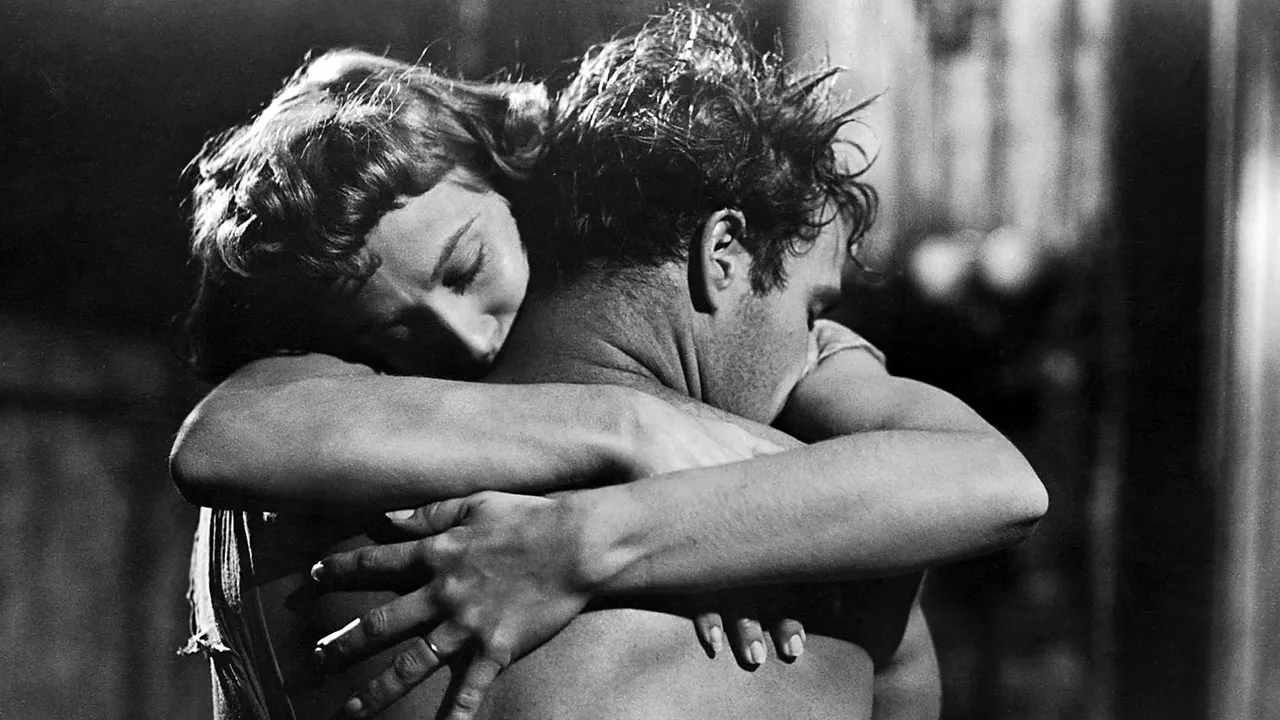
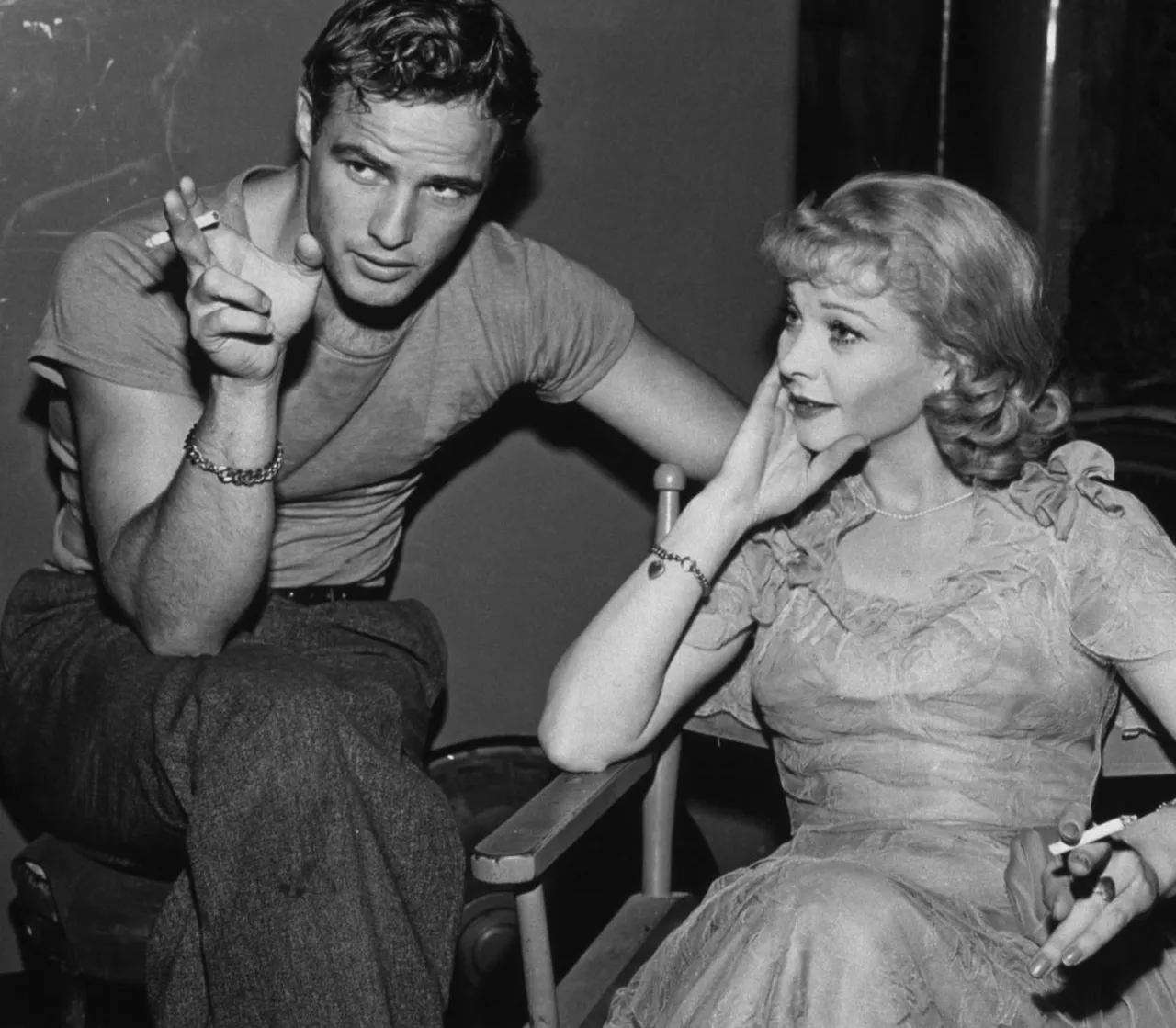

Plot of the film
The story is about a woman named Blanche (Vivien Leigh), a woman from a wealthy family with increasingly chaotic mental health, decides to live for a while with her sister Stella (Kim Hunter) and brother-in-law Stanley (Marlon Brando) because their property called Belle Reve went completely bankrupt. Blanche hides a lurid past that led her to flee her native home, and her brother-in-law will begin to sift through it to uncover her secret, further introducing Blanche to dementia.
The particularities of the characters perfectly elaborate the chaotic environment of the story. Blanche is a woman who, despite having lost everything, has airs of grandeur. She lives in an ostentatious world created by her, due to her mental condition that will later worsen, which makes her think she is surrounded by gold, silver and diamonds. Stanley is the opposite of Blanche, he was not born in a cradle of gold but belongs to the working class of workers. He does not live in a palace with his wife but in a small apartment in an immigrant neighborhood. Stanley's attitude is manly, rough and coarse, a domineering figure who sometimes abuses his wife and has fierce fights with her.
Stella, Blanche's sister and Stanley's wife, is a passive person who left her wealthy life to get married, a fact that Blanche never understood about her sister, despite her husband's attitude and his bad treatment, she feels a strong sexual attraction towards him, due to his macho, strong and dominant attitude. Stella subsequently becomes the figure in the middle of a pitched battle.
Trama de la película
La historia trata sobre una mujer llamada Blanche (Vivien Leigh), una mujer proveniente de una familia acaudalada y con una salud mental cada vez más caótica, decide vivir por un tiempo con su hermana Stella (Kim Hunter) y con su cuñado Stanley (Marlon Brando) debido a que su propiedad llamada Belle Reve quedó completamente en la quiebra. Blanche oculta un escabroso pasado que la conllevó a huir de su hogar natal, y su cuñado comenzará escudriñar en él para descubrir su secreto, introduciendo aún más a Blanche hacia la demencia.
Las particularidades de los personajes elaboran a la perfección el entorno caótico de la historia. Blanche es una mujer que a pesar de que lo perdió todo, tiene aires de grandeza. Vive en un mundo ostentoso creado por ella, debido a su condición mental que más adelante se irá agravando, lo que la hace pensar que se encuentra rodeada de oro, plata y diamantes. Stanley es todo lo contrario a Blanche, no nació en cuna de oro sino que pertenece a la clase obrera de trabajadores. No vive en un palacio con su esposa sino en un pequeño apartamento en un barrio de inmigrantes. La actitud de Stanley es varonil, ruda y tosca, una figura dominante que a veces abusa de su mujer y tiene fuertes peleas con ella.
Stella, la hermana de Blanche y esposa de Stanley, es una persona pasiva que dejó su vida acaudalada para casarse, hecho que Blanche nunca comprendió de su hermana, a pesar de la actitud de su esposo y su mal trato, ella siente una fuerte atracción sexual hacia él, debido a su actitud machista, fuerte y dominante. Stella se convierte posteriormente en la figura que está en medio de una batalla campal.



The marital problems between the couple are intensifying due to the presence of Blanche, which causes a confrontation between her and Stanley, both are enemies in this war. Blanche represents femininity, the upper class and subtlety. Stanley represents machismo, coarseness and rudeness. Both are used to always having control over their surroundings, using their disparate yet effective tactics, but things start to fall on Blanche when Stanley begins to dig into his terrible past and discovers the real reason he fled his hometown.
It is here that rudeness wins out over elegance, a struggle between two strata trying to seize power. However, the film begins to show us other equally interesting aspects to analyze, for example, the fight between Blanche and Stella is not only a battle full of contempt, but we can also perceive an attraction between the two. A hatred that perhaps transcends desire or a crossroads that allows us to see that there is a uniquely sexual undertone, really the photographic part of the film has done a great job to let us see these details.
Another aspect to highlight is the mental condition that Blanche suffers from, many viewers will conclude that the protagonist suffers from a "chronic dementia" that keeps her subsumed in an unreal world where she is still a fine wealthy woman. This aspect hints that Blanche never got over the circumstances that occurred in her past, and that not only affected her monetarily, but also mentally, aggravating her condition as she stayed at her sister and brother-in-law's house. Her affliction becomes stronger, becoming noticeable to others, and is used as a weapon by Stanley to get rid of his sister-in-law.
Los problemas maritales entre la pareja se van intensificando debido a la presencia de Blanche, lo que provoca un enfrentamiento entre ella y Stanley, ambos son enemigos en esta guerra. Blanche, representa a la feminidad, a la clase alta y a la sutileza. Stanley representa al machismo, a la tosquedad y a la rudeza. Ambos están acostumbrados a tener siempre el control sobre sus entornos, utilizando sus tácticas tan dispares y a la vez tan efectivas, pero las cosas comienzan a recaer sobre Blanche cuando Stanley comienza a indagar sobre su terrible pasado y descubre el verdadero motivo por el que huyó de su ciudad natal.
Es aquí donde la rudeza le gana la batalla a la elegancia, una lucha entre dos estratos que intentan tomar el poder. Sin embargo, la película comienza a mostrarnos otros aspectos igualmente interesantes para analizar, por ejemplo, la lucha entre Blanche y Stella no solo es una batalla llena de desprecio, sino que también se puede percibir una atracción entre los dos. Un odio que tal vez trasciende a deseo o una encrucijada que nos permite ver que existe un trasfondo únicamente sexual, de verdad que la parte fotográfica de la película ha hecho un gran trabajo para dejarnos ver estos detalles.
Otro aspecto a resaltar es la condición mental que padece Blanche, muchos espectadores concluirán que la protagonista sufre de una “demencia crónica” que la mantiene subsumida en un mundo irreal donde ella sigue siendo una fina mujer acaudalada. Este aspecto deja entrever que Blanche jamás superó las circunstancias que ocurrieron en su pasado, y que no solo la afectó monetariamente, sino también mentalmente, agravando su condición a medida que se quedaba en casa de su hermana y su cuñado. Su padecimiento se vuelve más fuerte volviéndose notorio para los demás, usándose como arma para Stanley para así poder deshacerse de su cuñada.



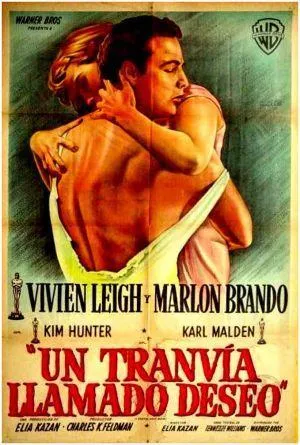


As I mentioned before A Streetcar Named Desire is based on a play made by the same writer, although some details were changed because they were very sensitive issues for the time, the sequence of the story has been spectacular. I have not seen the play but of course I had the opportunity to enjoy this magnificent movie after searching for it on the internet, all thanks to the recommendation of a friend who told me to see it because I was going to like it. If you like the classics or you start to have a taste for them, you can't miss this magnificent work of the 50s. I give it a 9/10 and add it to my list of classic movies I'm willing to watch again.
Como he mencionado anteriormente A Streetcar Named Desire está basada en una obra teatral realizada por el mismo escritor, aunque se cambiaron algunos detalles debido a que eran temas muy delicados para la época, la secuencia de la historia ha sido espectacular. No he visto la obra teatral pero por supuesto tuve la oportunidad de disfrutar de esta magnífica película después de buscarla por internet, todo gracias a la recomendación de un amigo que me dijo que la viera ya que me iba a gustar. Si te gustan los clásicos o empiezas a tener gusto por ellos, no puedes pasar desapercibido esta magnífica obra de los años 50s. Le doy un 9/10 y la sumo a mi lista de películas clásicas que estoy dispuesto a ver otra vez.



Written by @universoperdido. June 01, 2021
Escrito por @universoperdido. 01 de Junio del 2021

Other publications of my authorship | Otras publicaciones de mi autoría


¿Eres escritor? ¿No encuentras un lugar adecuado para colocar tus trabajos literarios? Unete a Literatos, una comunidad en Hive donde puedes publicar tus cuentos, poemas, ensayos literarios y novelas inéditos de tu propia autoría.


